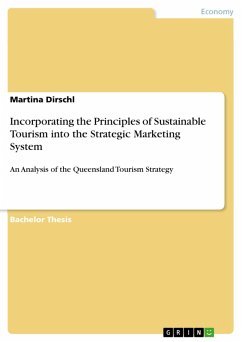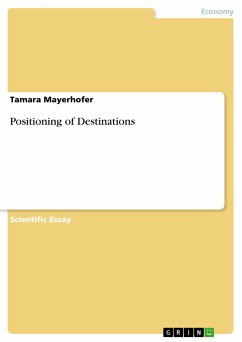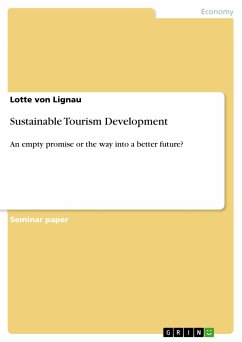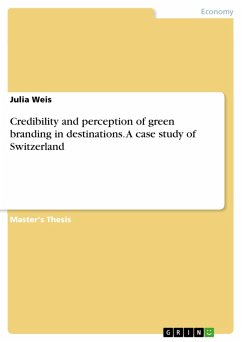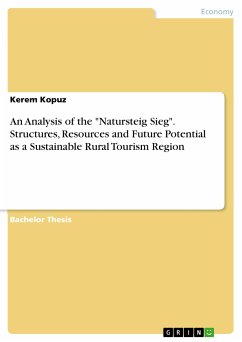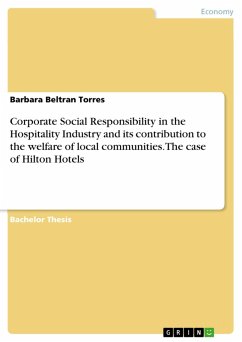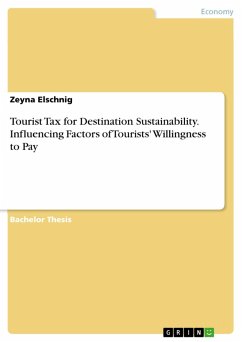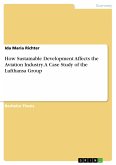Bachelor Thesis from the year 2008 in the subject Tourism - Miscellaneous, grade: 1,0, Heilbronn University, language: English, abstract: Tourism is often considered a welcome source of economic development providing employment opportunities, producing means of earning foreign exchange, and stimulating the local economy. The tourism sector is more complex than economic activity alone, since the social, political, technical and ecological environments also have a strong influence on it and vice versa. "Conventional" mass tourism is associated with numerous negative effects, such as environmental destruction and loss of cultural heritage. For this reason, some of the terms that have surfaced over the last decade are "sustainable" tourism and "alternative" tourism. The increasing awareness of consumers about Corporate Social Responsibility and environmental issues has brought forward a new target group named the "morally conscious tourist". Destinations and especially international corporations alike advertise with these terms as a means to differentiate themselves, reaching out for this new, emerging customer segment. However, sustainability should not merely be a marketing ploy to reach new customers or to perform "greenwashing" in order to appear more environmentally friendly. In fact, it is a complex and difficult task to achieve the implementation of sustainable business practices and to develop sustainable tourism products. It is exactly this challenge the research paper will focus on by analyzing how to incorporate the principles of sustainability into the marketing system of tourism businesses or destinations. An exploratory as well as descriptive research design based on external and internal secondary data is used in order to obtain information that can answer the research question. The first aspect to be studied in this research paper is the development of tourism and the tourism industry with regards to the emergence of mass tourism, as well as the criticisms of tourism that have arisen throughout the past and started the ongoing discussion about sustainable tourism. Further, the principles of sustainability and sustainable tourism will be explained and considered critically. Secondly, the aspects that need to be integrated into the marketing concept will be identified on the basis of the strategic marketing system developed by Lewis and Chambers (1989). The findings will provide the basis for analyzing the marketing strategy of Tourism Queensland in the subsequent section. Finally, a conclusion will be drawn on the findings.
Dieser Download kann aus rechtlichen Gründen nur mit Rechnungsadresse in A, B, BG, CY, CZ, D, DK, EW, E, FIN, F, GR, HR, H, IRL, I, LT, L, LR, M, NL, PL, P, R, S, SLO, SK ausgeliefert werden.

